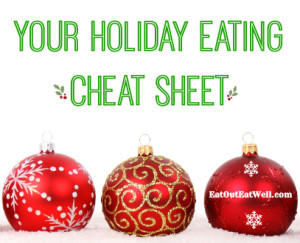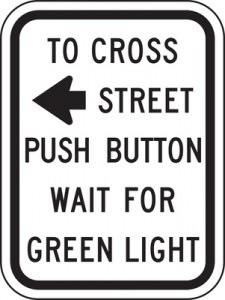Are you feeling some holiday pressure? Are you, along with lots of family and friends, jumping into entertaining and cooking mode?
Is food a good antidote to all of that stress (at least in the moment)? What about the pressure – subtle and sometimes not so subtle – to eat everything that’s set out on the table by those close to you?
Then there’s the anger/guilt about eating way too much – and then repeating the whole process.
Consider These Ideas:
- Don’t feel obliged to eat out of courtesy – especially if you don’t want the food or you’re full –because you don’t want to hurt someone’s feelings. Get over it – the calories are going into your mouth, not theirs.
- Give yourself permission to NOT eat something just because it’s tradition. Whose tradition?
- Only eat it if you want it. Eat what you want not what you think you should.
- Say no to the friend or relative who is pushing the extra piece of pie. You’re the one stepping on the scale or zipping up your jeans the next day – not them.
- Have some personal rules and commit to them. An example might be: I really want pecan pie for dessert so I’ll have only one biscuit without butter with my meal.
- Make a deal (with yourself) that you can eat what you want during dinner. Put the food on your plate and enjoy every last morsel. Clean your plate if you want to. But – that’s it. No seconds and no double-decking the plate.
- Make trades. Trade the biscuit and butter for wine with dinner. Limit the hors d’oeuvres. They really pack in calories. Make eating one or two your rule.
- Choose your beverages wisely. Alcohol adds calories (7 calories/gram). Alcohol with mixers adds even more calories. Plus, alcohol takes the edge off lots of things – including your ability to stick to your plan.
- Drink water. It fills you up. Have a diet soda if you want. If you’re going to drink alcohol, try limiting the amount – think about alternating with water, seltzer, or unsweetened beverages.
- Control your environment. Don’t hang around the buffet table or stand next to the platter of delicious whatevers. Why are you tempting yourself?
- Talk to someone. It’s hard to shove food in your mouth when you’re talking.
- Get rid of leftovers. Leftover stuffing has defeated the best-laid plans.
- Don’t nibble during clean up (or preparation for that matter). Broken cookies, pieces of piecrust, and the last spoonsful of stuffing haven’t magically lost their calories.
- Don’t starve yourself the day of a grand meal. If you do in an attempt to save up calories for a splurge, you’ll probably be so hungry by the time dinner is ready you’ll end up shoving food into your mouth faster than you can say turkey.
- If you end up overeating, add in some longer walks and a couple of days of moderate eating afterward.
Do you want some more really helpful (and sometimes humorous) info about the holidays and holiday eating? Check these out:
New on Amazon: 30 Ways to Eat Your Holiday Favorites and Still Get Into Your Jeans
Available from the iTunes store: Eat Out Eat Well magazine




